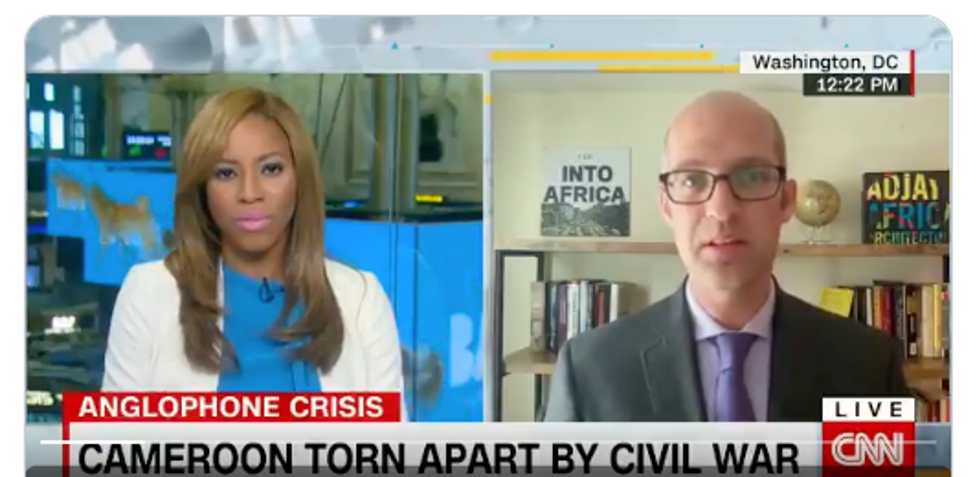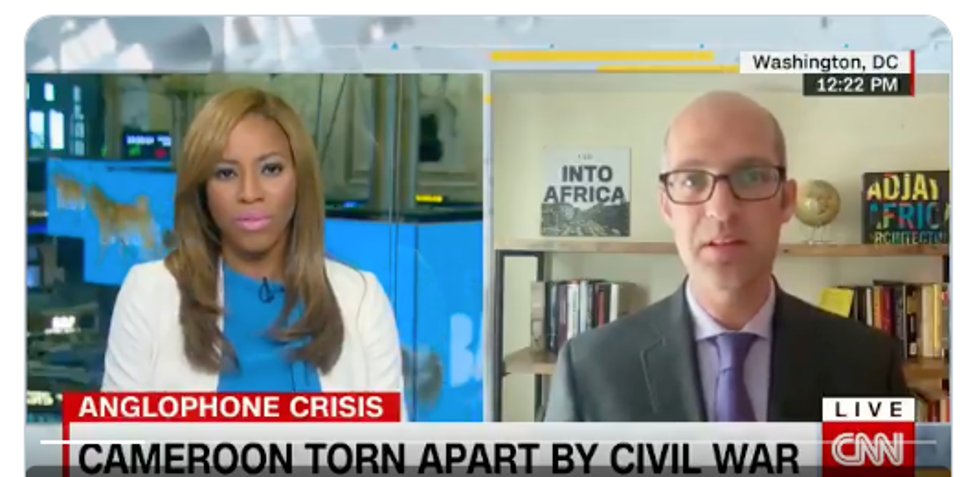 Cable News Network(CNN)
Cable News Network(CNN) CNN International Anchor, Zain Asher talks with Judd Devermont of the Center for Strategic and International Studies (CSIS) about the Anglophone crisis in Cameroon.
A destabilizing war between the government in Yaoundé, Cameroon, and Anglophone separatists has been going on for more than four years. Hundreds of civilians have died as a result. Thousands have been displaced and are now refugees in neighboring countries. Most negotiations to resolve the conflict appear to have failed.
With each passing day that the situation goes on, it becomes a distant memory, even while the pain and suffering of civilians continue. Meanwhile, other conflict situations on the African continent, such as the Tigray crisis in Ethiopia, have gained more attention, even spurring quick reactions from powerful nations and international organizations such as the United States and the United Nations.
Why the Cameroon situation remains protracted, and unresolved after many years is the subject of much debate. But experts seem to think French interests in Cameroon may be partly to blame for the stalemate. In his comments with Cable News Network or CNN, Judd Devermont of the US-based Center for Strategic and International Studies added credence to the role that France continues to play in Cameroon and why this may be a hindrance to a resolution of the Anglophone situation.
“It has been neglected and that’s been a real tragedy,” Devermont told anchor Zain Asher.
Because of CNN’s global reach and influence, the interview received lots of views, shares, and comments on social media since it aired on June 2.
As an organization casting a critical lens on how the news media treat the news about the African continent, we at Africa News Matters, believe in the important role of the media as a public good. CNN deserves credit for resurrecting the issue of conflict that remains unresolved in Cameroon after many years of bloodshed. This is exactly why we are writing about it here.
In addition to the turmoil in the anglophone regions of Cameroon, separatist leaders in the conflict have been picked up, tried by Cameroon’s military tribunal, and given life in prison. Others, including opposition leader Maurice Kamto, have experienced jail time or have been silenced for their own disagreements with the administration on the conduct of elections, and other state matters. Opponents of the Paul Biya administration have nowhere to go but to stick their heads in the sands.
The Cameroon government appears to be slow-walking the process to peace and seems unwilling to sit down for real negotiations, according to Devermont. “The government so far has only made very superficial concessions, its really dragged its feet.”
Too far apart, there are now too many sides in the conflict. The separatist war is being run from Washington D.C., as well as from disparate locations in Europe, and the African continent. Entrenched, and unbending, the Biya administration is dug in about Cameroon’s territorial integrity which it says is non-negotiable.
American politicians have flown to Cameroon to see things for themselves and to discuss with the government. The United Nations (UN), the European Union (EU), and governments in Europe know what is going on. The international community is aware of the crisis based on these news media accounts. Yet, there has been no serious action to stop the administration from killing civilians.
We are counting Cameroon as one of the casualties of French malfeasance in Africa. How they prop up dictators, turn a blind eye to whatever is going on, and reap the benefits of imperialism; the produce, the oil, the slave labor, all of which feed the French system.
Recently, French President Emmanuel Macron apologized to the people of Rwanda for what he said was the French role in the 1994 Rwandan genocide which killed more than 800,000 civilians. How many world leaders noticed that the French government made the stunning apology, is hard to tell? A litany of French atrocities across the continent is not too far to fetch – Ivory Coast, Central African Republic (CAR), Mali, The Democratic Republic of Congo (DRC), Rwanda and Burundi, Niger, and Chad.

